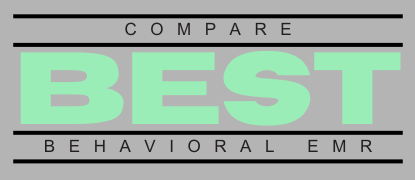Teletherapy is no longer just an alternative to in-person sessions—it’s now a cornerstone of behavioral health care delivery. As a practice owner or clinician, choosing the right behavioral health EMR for teletherapy is crucial for efficient practice management, robust documentation, and maintaining excellent client experiences. But with numerous EMR software options available, how can you determine which solution is best suited for your virtual care practice?
In this article, we’ll explore the key features you should prioritize when evaluating behavioral health EMR systems, specifically focusing on supporting effective teletherapy. We’ll also highlight critical considerations to streamline your selection process, helping you enhance your practice operations and client outcomes.
Why a Behavioral Health EMR Tailored for Teletherapy Matters
The rapid growth of virtual care has reshaped behavioral health, making teletherapy integral to patient care and practice sustainability. However, not every EMR is built to effectively handle the unique demands of teletherapy. Selecting a behavioral health EMR that specifically supports teletherapy will:
- Simplify workflow integration between scheduling, billing, and documentation.
- Improve patient engagement through secure and reliable virtual communication tools.
- Ensure compliance with HIPAA and other regulatory requirements.
- Enhance your clinicians’ productivity and reduce administrative burdens.
Essential Features to Look for in a Behavioral Health EMR for Teletherapy
When choosing the ideal EMR solution for teletherapy, consider these essential features:
1. Integrated Telehealth Platform
Your behavioral health EMR should seamlessly integrate a secure telehealth platform. This integration allows easy scheduling, starting virtual sessions from within the EMR, and simplified session documentation. Look for features such as:
- One-click video conferencing capabilities
- Secure and encrypted video channels for HIPAA compliance
- Virtual waiting rooms and appointment notifications for clients
2. Customized Documentation and Note Templates
Documentation requirements for teletherapy sessions differ slightly from in-person care. Choose a behavioral health EMR that provides customizable documentation templates tailored specifically to virtual sessions. This customization boosts efficiency and ensures thorough record-keeping.
3. Robust Client Communication Tools
Teletherapy thrives on clear, reliable communication. Your chosen EMR should facilitate secure messaging, appointment reminders, and client portal access. A user-friendly client portal empowers clients to schedule appointments, access session notes, and communicate securely with their therapist—improving engagement and satisfaction.
4. Streamlined Billing and Insurance Integration
Managing insurance claims and billing for teletherapy can get complicated. Choose an EMR with built-in billing capabilities designed to handle teletherapy-specific coding and reimbursement rules. This feature will save time and ensure accurate, timely payments from insurance providers and patients.
5. Strong Security and Compliance Standards
Protecting patient data is critical, especially in teletherapy settings. Select an EMR vendor that demonstrates adherence to the latest security protocols, including HIPAA compliance, data encryption, and secure client authentication procedures. Verify that the EMR vendor regularly undergoes security audits to maintain compliance standards.
Questions to Ask when Evaluating Behavioral Health EMRs for Teletherapy
To make an informed decision, consider asking EMR vendors the following questions:
- Does your EMR offer built-in teletherapy functionality, or does it require integration with third-party solutions?
- What security measures do you have in place to protect patient information during virtual sessions?
- How customizable is your documentation for teletherapy-specific workflows?
- Can your billing system handle teletherapy-specific coding and reimbursement?
- How does your platform support clinician efficiency and ease of use?
For additional insights on EMR selection, the National Council for Mental Wellbeing provides helpful guidelines on evaluating technology for behavioral health practices.
Common Mistakes to Avoid
Selecting the right behavioral health EMR is a significant investment. Avoid these common mistakes to ensure you choose wisely:
- Ignoring Teletherapy-Specific Needs: Don’t assume any EMR will automatically support teletherapy effectively. Evaluate telehealth features specifically.
- Overlooking Client Experience: Prioritize client-facing features such as easy scheduling, secure communication portals, and simple access to appointment links.
- Underestimating Integration Needs: Ensure your EMR integrates smoothly with existing practice management software, CRM, or analytics tools if you already use them.
Making Your Final Decision
Once you’ve reviewed available EMR options, conducted vendor demonstrations, and asked critical questions, consider running a trial or demonstration period. A hands-on evaluation helps confirm if a particular behavioral health EMR genuinely meets your teletherapy needs and expectations.
Conclusion: Choose the Best Behavioral Health EMR for Your Teletherapy Practice
Selecting the right behavioral health EMR for teletherapy can significantly improve your practice’s efficiency, clinician satisfaction, and client experience. By carefully evaluating essential teletherapy features, security standards, billing capabilities, and client engagement tools, you’ll confidently identify the EMR solution that aligns best with your virtual care needs.
Not sure where to start? We offer a free practice analysis to help you find the perfect EMR solution tailored specifically for your teletherapy practice. Reach out today and let our experts guide you toward improved practice operations and client care.
Meta description:
Learn how to choose the best behavioral health EMR for teletherapy by identifying essential features and asking the right questions for optimal virtual care.
